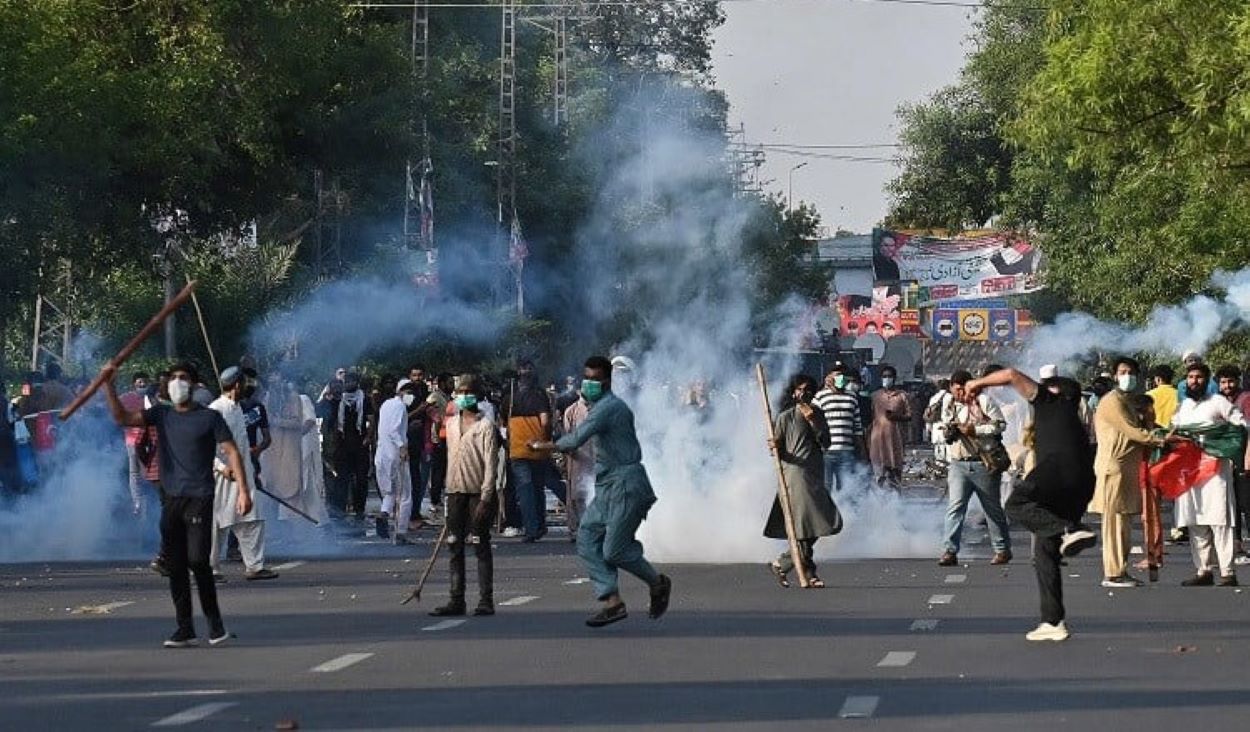Several Afghan nationals arrested for inciting unrest reported they were drawn into participating in protests by the Pakistan Tehreek-e-Insaf (PTI) party.
Khayal Gul, an Afghan detainee, alleged PTI offered him Rs 2,000 daily to join protests and engage in vandalism. “The PTI leadership fled, and the police caught us,” he said, regretting his involvement and noting the lack of promised payment.
Another detainee, Mula Dad, said he and two friends came from Peshawar to join the protests. He mentioned that they were encouraged to vandalize and were not compensated, resulting in imprisonment. “We urge our Afghan brothers to avoid violence and property damage,” he added.
Abdul Rahman, also detained, prioritizes supporting his family and criticized PTI’s call for disruption. “They pushed us to create chaos in Islamabad and damage government property,” he stated.
Authorities are stepping up legal actions against all participants in these disruptions, trying to expose the alleged conspiracy to provoke unrest under the guise of protest.
D-Chowk Protests
Before the planned PTI protest at D-Chowk, Islamabad Police arrested 412 people, including 60 Afghan nationals, to prevent disturbances.
Read: Islamabad Police Detain 412 in Crackdown Ahead of PTI Protest
This crackdown was part of a broader strategy to maintain public safety and prevent security breaches during the protest. Items found with the detainees, such as spiked batons and slingshots, suggested plans for violence.
The arrests covered areas including Bara Kahu, Tarnol, and Sangjani, increasing security across the capital. Rangers were deployed to protect the Red Zone and vital areas.
Interior Minister Mohsin Naqvi highlighted the risks of the protest, particularly with foreign dignitaries like Malaysian Prime Minister Anwar Ibrahim visiting. He warned PTI leaders against continuing their plans and promised a strong response to any threats. “No one defying the law will be tolerated,” Naqvi declared.
Authorities mobilized 4,000 police officers, erected barriers, and set up strategic blockades to control traffic between Islamabad and Rawalpindi.
Security was enhanced at key entry points, and law enforcement was alert to prevent disruptions. Rawalpindi’s City Police Officer, Khalid Hamdani, confirmed these extensive preparations, emphasizing that those causing unrest or damaging property would face legal action.






